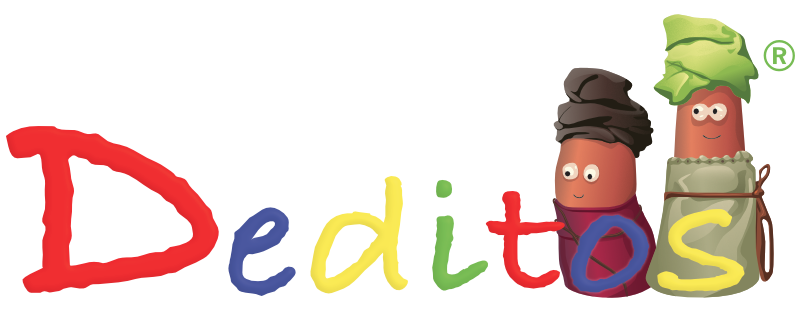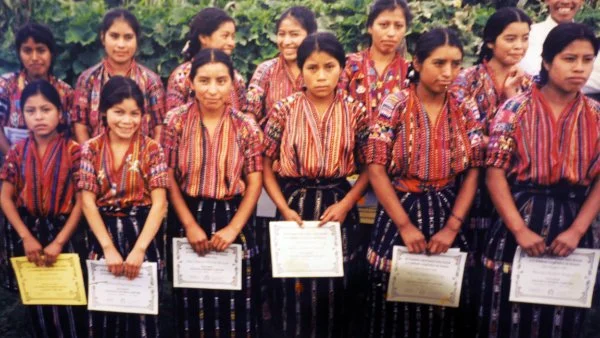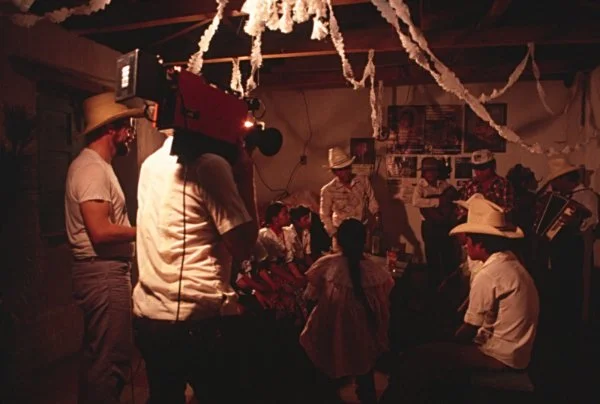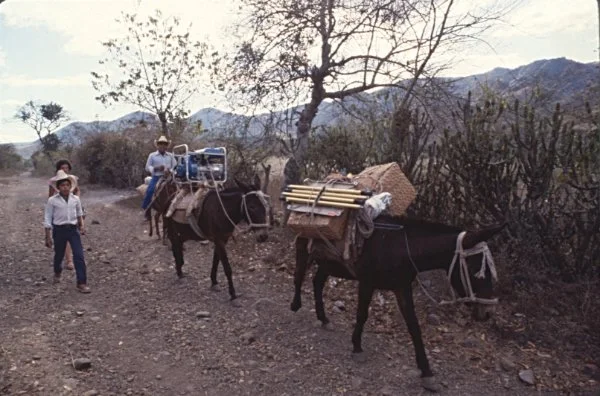Why we are involved with Deditos
Rick and Carol McArthur share their story of how God brought them to see the value of oral learners
and the need for audio and video materials.
In the early 1980s, Carol and I were “people of the Book” dedicating our lives to provide God’s Word to the Poqomam people of eastern Guatemala. We were breaking down the language barrier so that people could read for themselves, and be confronted with God’s love and grace in the language that best speaks to their heart.
We knew that having the Scriptures was a prerequisite for authentic life change as well as for the endurance of Christianity through the generations. So I struggled with the people’s lack of interest in the printed scriptures. The problem seemed to be that very few could read or write in the trade language, much less in their own language.
We proceeded to focus our efforts on helping people acquire these skills. I’ll never forget the deep frustration, and even hurt when no one showed up for the first class of a literacy campaign (that wasn’t)! We wondered if a change in the color of the cover would result in interest in the next scripture booklet. I joked with colleagues that the surest way to distribute the scriptures we were translating was via the ever-popular calendar we produced each year—consisting of a large picture and only one scripture verse.
In a different people group we did have seeming success with a church-based literacy project. I can still remember the satisfaction of seeing groups of graduates, proudly holding up their diplomas stating that they had passed a basic literacy course.
But only a few years later, when we were looking for readers to do an audio recording of the New Testament, very few of those graduates could still read.
We weren’t the only ones struggling with those issues. There was a growing global movement in missions towards a deeper understanding of the people groups whose oral tradition has been their bedrock for centuries. What we came to realize was that close to two-thirds of the world are oral communicators. Oral communicators process information that is concrete, sequential, and presented in a highly relational, participatory way. They think and talk about events, not words, and use stories to store, organize and communicate much of what they know. These groups transmit their heritage beliefs, values and other important information via stories, proverbs, poetry, chants, music, dances, and special ceremonies.
Carol selling books and audio cassettes at the town fair.
This brought us to the point where, instead of focusing on changing others to be like us, we began to focus on the strengths and abilities of traditional oral societies. It was liberating to realize one didn’t need to convince and cajole people to learn skills that had little value for them.
Filming a contextualized dramatization of the Prodigal Son.
Heading off to show flicks in the sticks.
Deditos companion TV program developed in Pakistan
This understanding of orality began to lead to an appreciation and respect for the inherent strengths of oral communicators. They place relationships and people above programs, act holistically, take God and his Word at face value, and “enter into” God’s Story, living out their faith in a practical and powerful way.
We also began to see ourselves in a different light. We recognized the limitations and pitfalls of our highly literate society. Things like a highly individualistic focus on our faith, a penchant for “distilling” (reducing really) our faith to a set of propositional truths that tend to remain abstract and theoretical. We deeply distrust our emotions and feelings, putting our faith in our objectivity, logic, and abstract categories. This results in a gap between professed faith and actual practice.
Recording dialogue for a scripture video.
It was also liberating to see how the Holy Spirit would touch people’s hearts through the simple act of listening and watching. A Mayan pastor shared that he was proud of his congregation’s spiritual maturity. But when the church began listening to the audio New Testament on a weekly basis, it was a real shock to him when members began to respond to the Holy Spirit, asking forgiveness of one another.
God has changed our perspective over the years. We still highly value being literate, and wish everyone was—but we can’t make that a pre-condition for faith in Jesus Christ. Our commitment to serving oral learners lead us to work in producing audio and video materials to complement the printed scripture.
After decades of work, our mission began closing their work in Guatemala and focusing resources on other areas of the globe. We were tasked with managing the audio and video studios, known as Viña, and realizing the vision of turning it into a nationally-run organization. The vision was to carry on providing God’s Word for the minority groups through the use of nationals using high technology to produce Biblical materials appropriate for oral learners.
Ten years later Viña became an independent ministry, and we moved to the capital to allow local leadership the freedom they needed to grow.
Last year Viña completed twenty years as an independent ministry. Carol and I have continued to be involved in different supporting roles. It has been awesome to see God lead Viña from a local to a globally-focused ministry. The Deditos curriculum is having a global impact.
But Deditos isn’t the only focus. Viña continues to be involved in producing other audio and video materials. Over the past thirty years, Viña has served language communities in Mexico, Central America, and several in South America through scripture recordings in approximately 60 languages.
In Central America, Viña has dubbed 70 scripture videos and recorded and produced 128 music productions, mostly of Mayan worship music.
“We continue to be involved, energized and fulfilled as we see churches around the world equipped with tools that empower them to fulfill their mission.”







